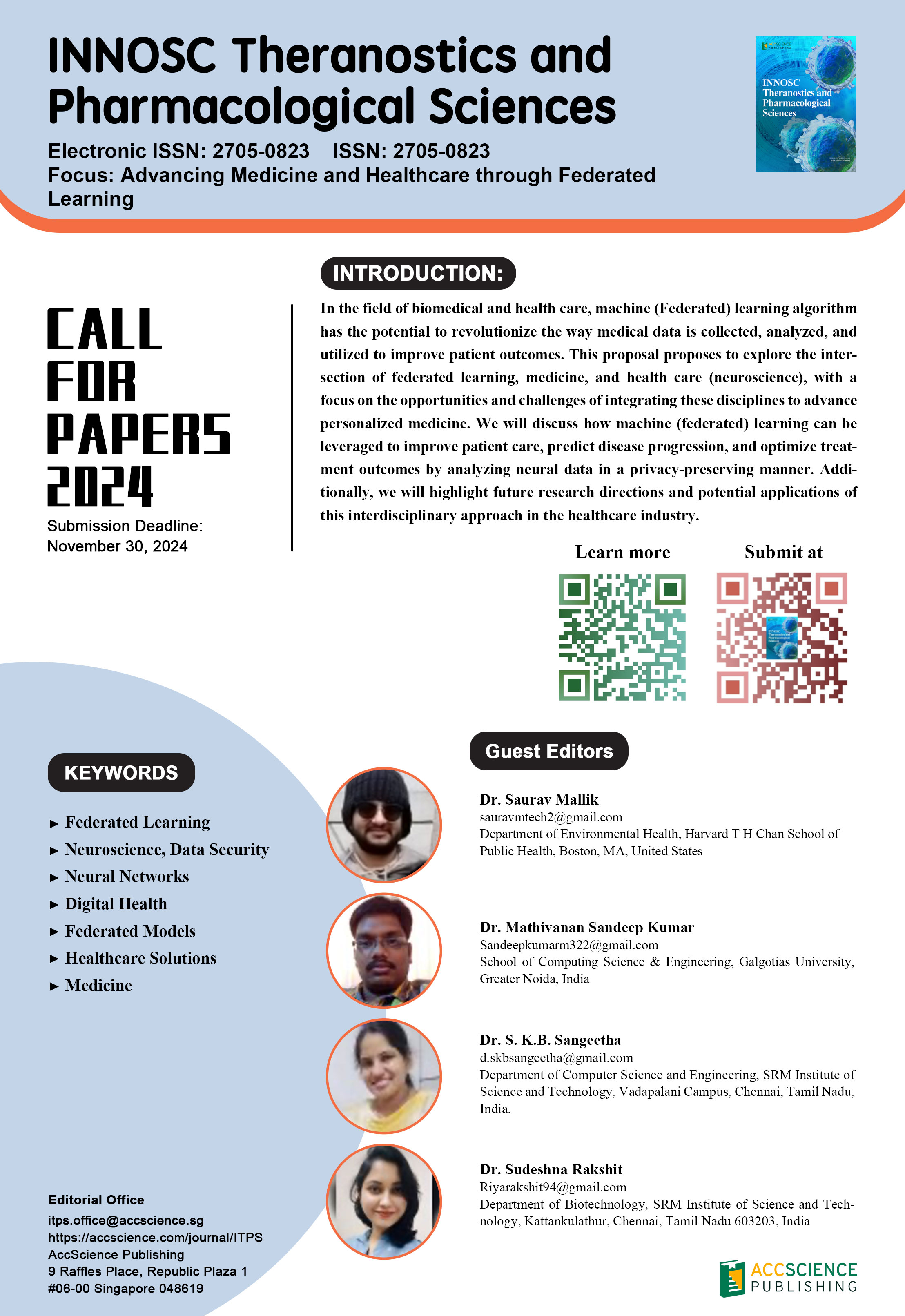
In the field of biomedical and health care, machine (Federated) learning algorithm has the potential to revolutionize the way medical data is collected, analyzed, and utilized to improve patient outcomes. This proposal proposes to explore the intersection of federated learning, medicine, and health care (neuroscience), with a focus on the opportunities and challenges of integrating these disciplines to advance personalized medicine. We will discuss how machine (federated) learning can be leveraged to improve patient care, predict disease progression, and optimize treatment outcomes by analyzing neural data in a privacy-preserving manner. Additionally, we will highlight future research directions and potential applications of this interdisciplinary approach in the healthcare industry.
Potential areas of interest include, but are not limited to:
- Collaborative healthcare networks
- Privacy and security in health data sharing
- Machine learning applications in healthcare
- Personalized medicine and treatment
- Data interoperability in healthcare systems
- Patient-centered care models
- Brain-computer interfaces for healthcare
- Federated learning for remote monitoring and diagnosis
- Real-time data analytics for healthcare decision-making
- Machine learning for improving patient outcomes
- Augmented reality in healthcare training and education
- Pharmacology and drug discovery using Artificial intelligence.
Leveraging artificial intelligence to revolutionize medical device safety





